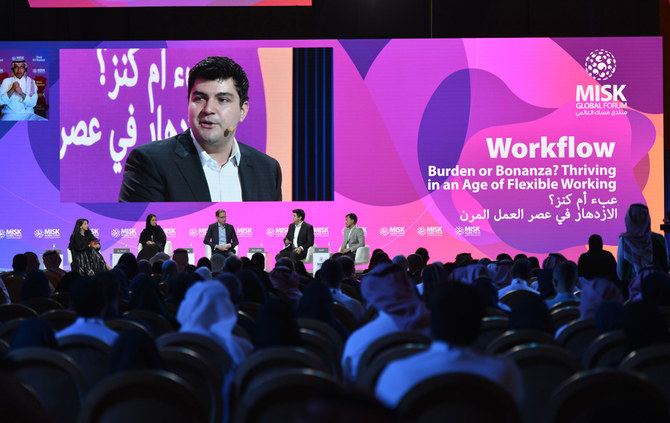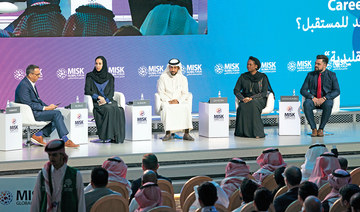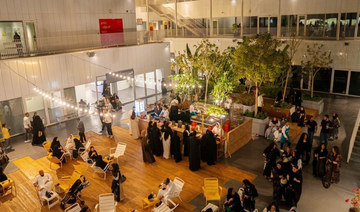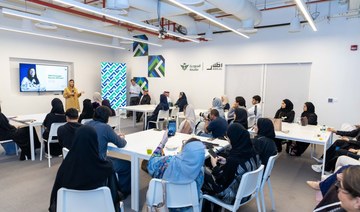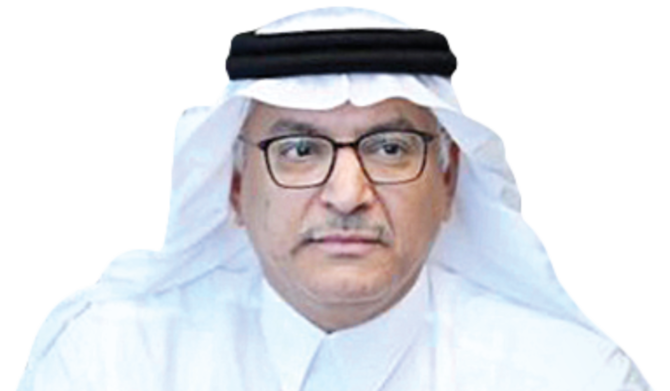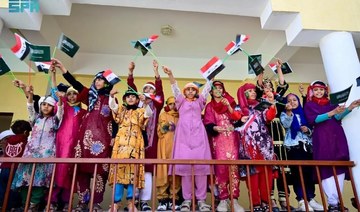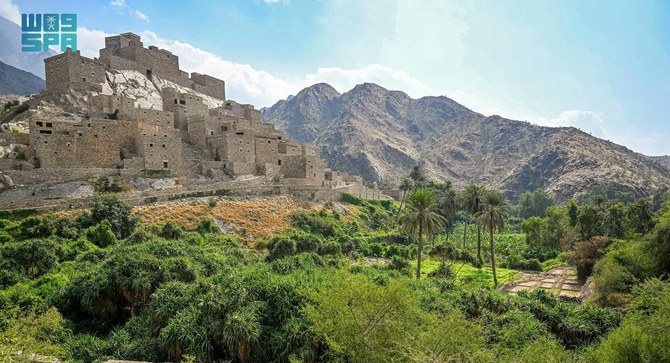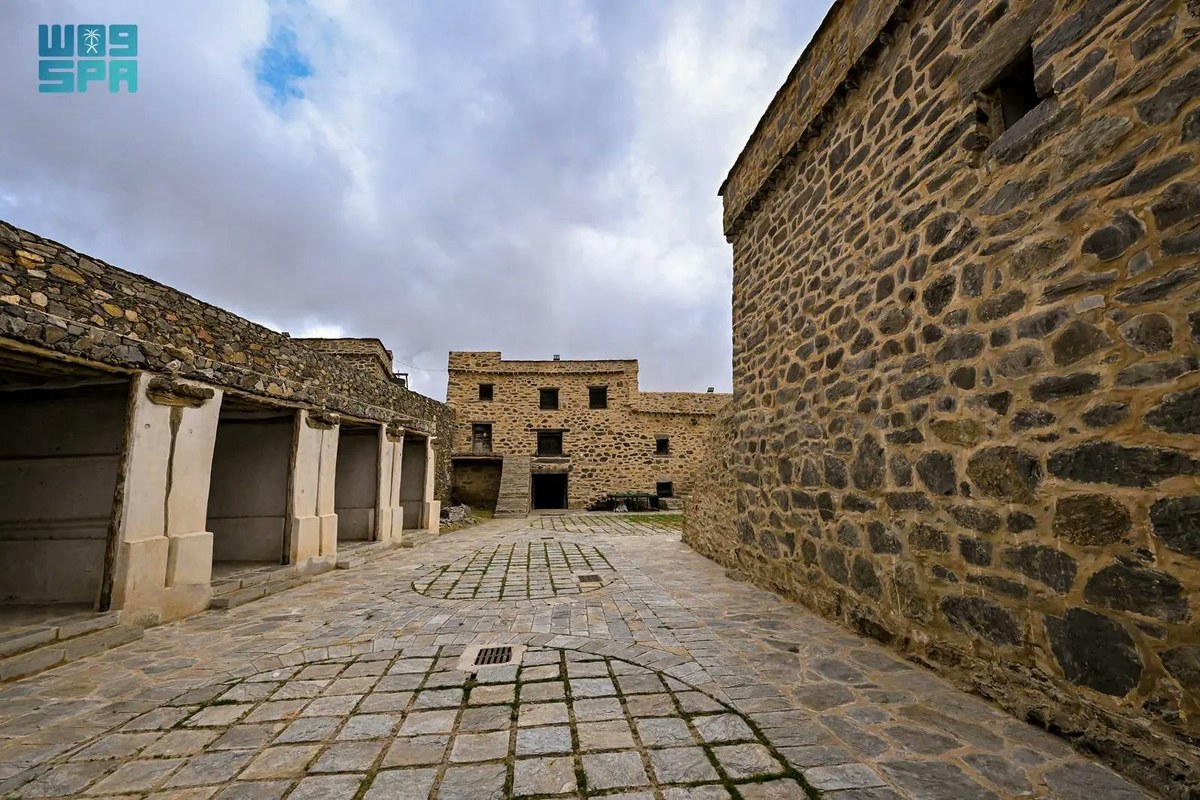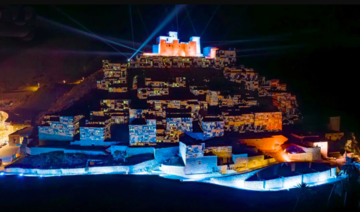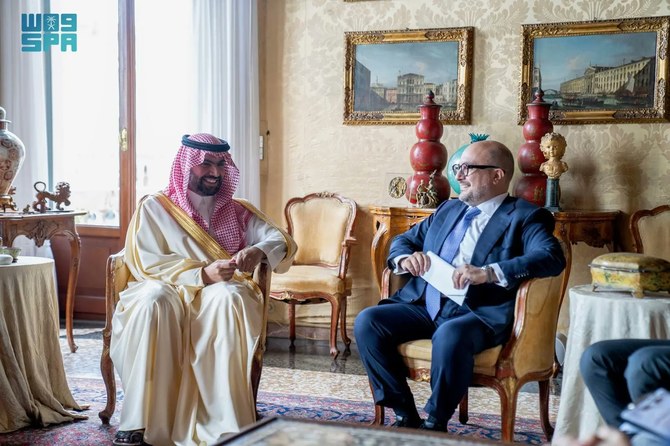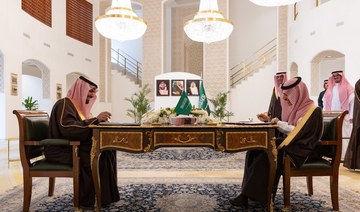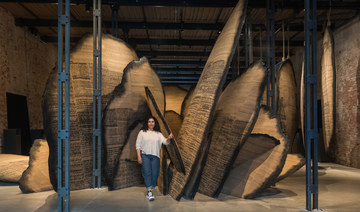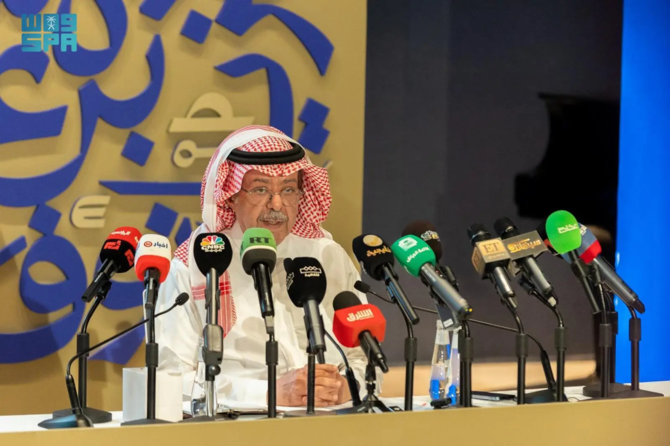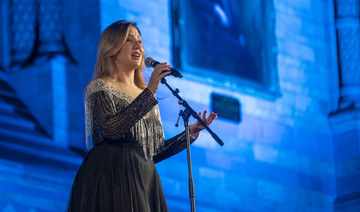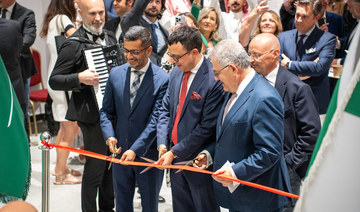RIYADH: Saudi Arabia is the world’s most misunderstood country, Kevin O’Leary, chairman of O’Shares ETF Canada and star of the TV show “Shark Tank,” told Arab News at the Misk Global Forum in Riyadh on Thursday.
“This is the best conference I’ve been to in terms of deal flow,” he added.
O’Leary said that his message to those who do not know anything about the country was to come and see it for themselves.
“You have to come here, put your feet on the ground, meet the people, eat the food, walk outside at night, and you will leave completely with a new mindset,” he said.
“If more investors come to Saudi Arabia and spend just three days here, there is going to be a tremendous amount of capital flowing into this region. This is really quite an eye-opener,” O’Leary said.
In an exclusive interview, both O’Leary and Prince Khaled bin Alwaleed bin Talal, founder and CEO of KBW Ventures, discussed the future of investment in Saudi Arabia.
Prince Khaled said that his No. 1 investment in the Kingdom is entertainment.
“Entertainment has been one of the lacking sectors here, sadly, but now obviously everything’s opening up. You see the desire from all the population to be entertained. So entertainment would be number one for me,” he said.
He also said that esports is a good investment and agrees with O’Leary that real estate is a “must” in Saudi Arabia.
“I would definitely do pharmaceuticals and health care, number one. No. 2, I love real estate. No.. 3, entertainment. Those are my three. I’ll put money into those three,” said O’Leary when asked which Saudi sectors he would choose to invest in.
The businessman was surprised by the Kingdom’s youthful population and believes health care and pharmaceuticals both have great potential.
This is the best conference I’ve been to in terms of deal flow. Kevin O’Leary
Kevin O’Leary, chairman of O’Shares ETF Canada
“I didn’t realize that the demographic was so interesting until I got here.”
He said real estate is his second investment option. “There are not enough hotels here. There needs to be more hotels, there needs to be more development around recreation. Clearly for decades Saudi people would go to Dubai or Bahrain for the weekend. Well, why leave home? Why not just develop?” O’Leary said.
“Where I went last night was a lot of fun. The ‘Boulevard’ was fantastic experience to walk at 11:30 at night, meet all these people. Everybody was having a great time and it was the middle of the week. If investors create experiences where people can enjoy themselves, why would they leave Saudi?” he added.
The two judges of the Entrepreneur World Cup (EWC) at Misk Global Forum both said it will be a huge challenge to decide who wins the award.
“It’s a huge responsibility to think of which company is going to walk away the winner. I’m definitely doing my homework. I’ve read about the companies a few times. I listened to the pitches obviously a few times. It’s a tough position to be in, but I’m honored to be here,” said Prince Khaled.
O’Leary is used to judging entrepreneurial contests around the world “but they tend to be regional in nature,” he said.
“I have never seen a global platform like this before … to have a hundred thousand plus applications from over 127 countries, no one’s ever done that. I was immediately attracted to it,” O’Leary added.
He believes that there is a potential for EWC to become a global annual event. “It could be something that people flock to,” he said.
O’Leary was impressed with the quality of the deals in EWC competition, saying he listened to the pitches and was amazed.
Prince Khaled pointed out the investment in youth where Saudi Arabia has almost 70 percent of the population under the age of 30. “The important thing to notice is that the penetration of technology; mobile phones here are absolutely enormous.”
He said that Saudi Arabia is the number one user of Snapchat in the world. Moreover, the Kingdom is one of the top five users of Twitter. And YouTube is one of the biggest social media platforms for Saudis who use it “to educate people on what Saudi is, who they are and different types of businesses that they’re doing. So, Saudi is very tech Saudi,” he said.
“We’re blessed to have forward-thinking leaders that are really putting a lot of their bidding on the youth with all sorts of programs, from Munshaat, SBC, and different types of government programs to enable entrepreneurship here in the region,” he added.
O’Leary said that one reason for his success was his knowledge of other cultures and societies: “Half Lebanese, half Irish, I think it’s the right combination for Saudi Arabia.”
He said that as an investor he was not scared to invest in Cambodia in real estate after the French left because he understood the value of tourism that would happen in some of those locations since he lived there before.
“That has been one of my greatest investments because if you understand that culture and understand the people, then you can make risk-adjusted investments on a knowledge base that others don’t have because you’re not going to know that unless you go there,” he said.



